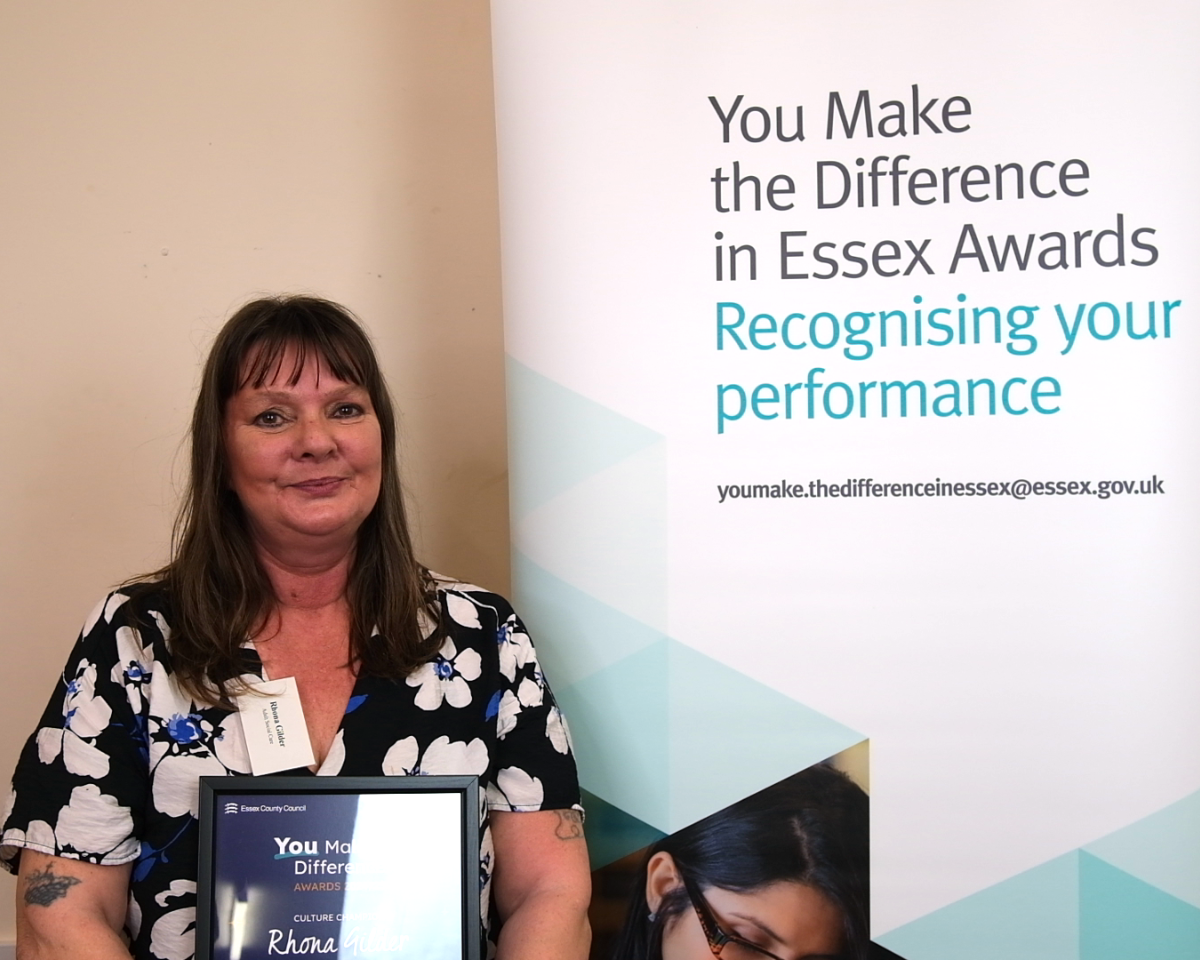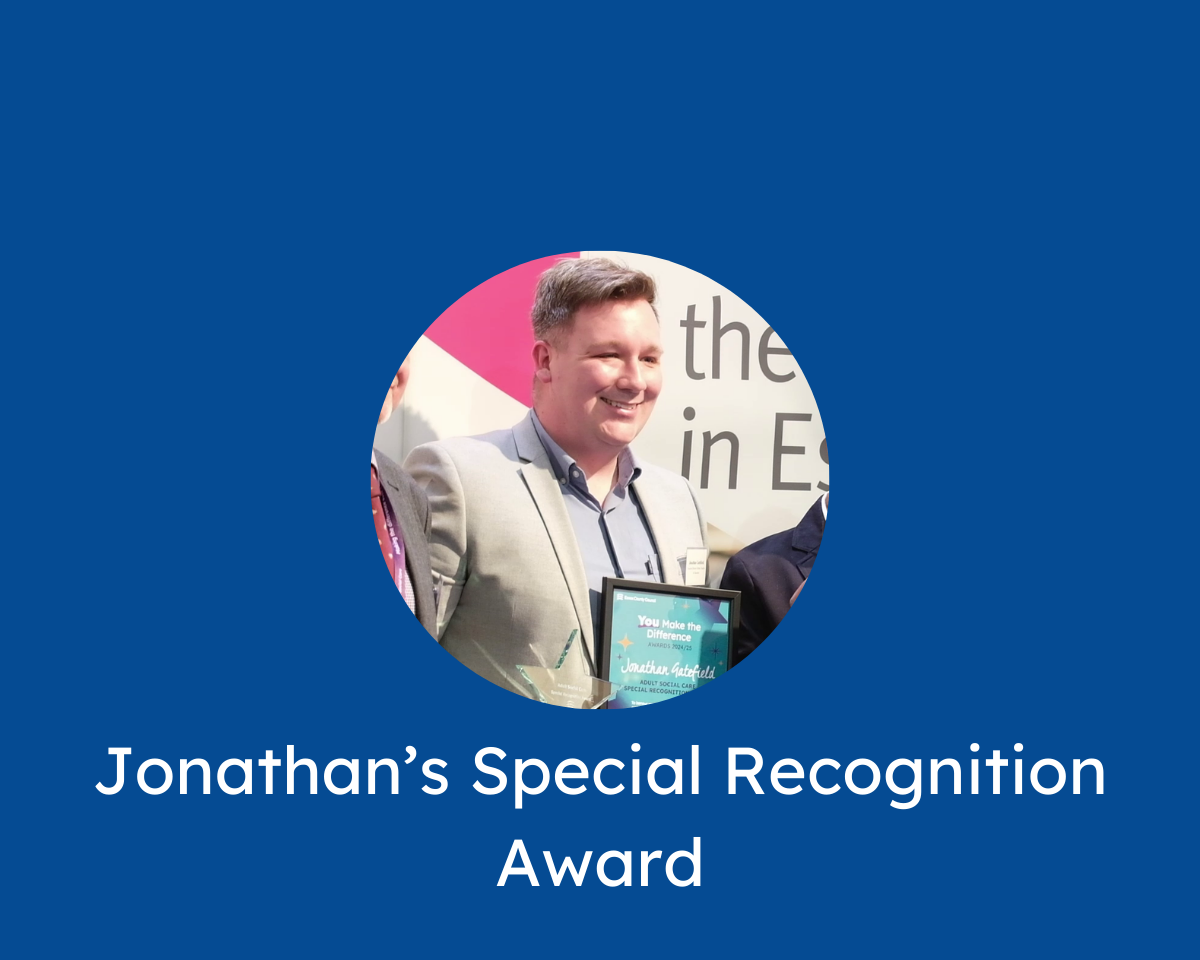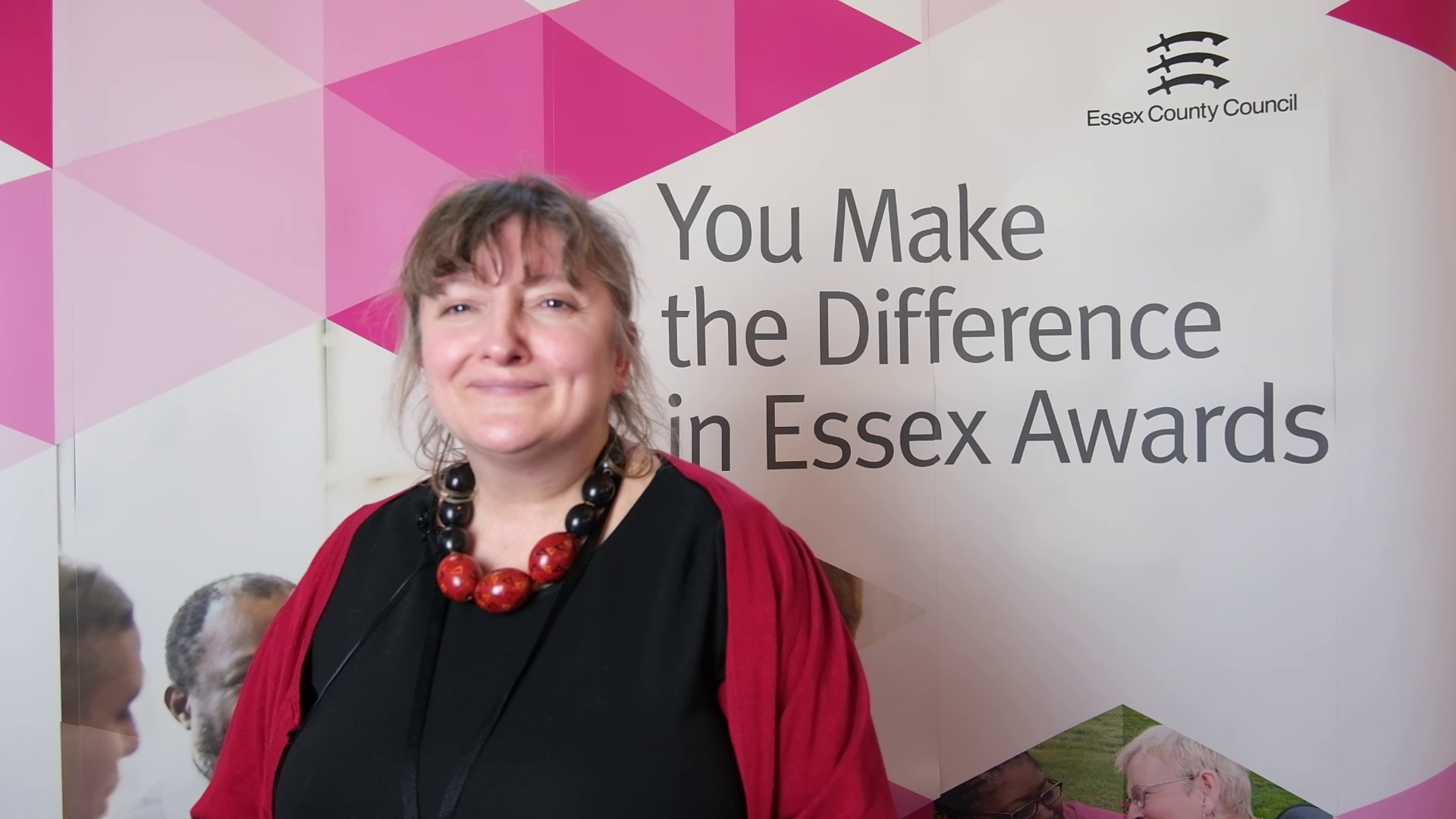It’s Occupational Therapy week, and we want to take the opportunity to celebrate and hear from the incredible people who achieve so much through their work.
We spoke with Jessie and Michael, who were each able to provide some fascinating unique insights into the work they do:
Tell us a bit about yourself…
Jessie: I started my Occupational Therapy (OT) career after graduating from university in 2017. I began with ward-based rotations in an NHS trust, then integrated care settings in the community. My most recent role prior to starting at Essex County Council (ECC) was in a SEND school supporting children and young adults engage in activities that were meaningful and important to them. I also worked on family-based occupations. I love working with people and being curious as to how I can support someone to live a life that brings them belonging, joy and comfort, in whatever way that works for them! I love to celebrate OT and the genuine ways we can enable people to do what they want and need to do. I love the creativity of OT and how it enables us to put the person at the centre of their journey.
Michael: I graduated last year from the University of Essex and began working in the acute setting within an NHS trust as a rotational band 5 Occupational Therapist. My first rotation was in an orthopaedic ward which felt so daunting in the beginning because I never would have pictured myself running an entire ward on my own. However, I really enjoyed my first rotation and then six months later I found myself in general medicine. This rotation was more challenging for me, the cases were a lot harder, and the pressure grew faster. Despite that, I learnt so much from my time in hospital and then I recently began working for ECC. I really enjoy helping people become more independent and my care and compassion stemmed from early childhood when I was supporting those who were homeless within my local community from a charity founded by my mum.

What do you do here at ECC?
Jessie: I am an OT Practice Lead in the Quality Assurance team. I support, explore and advocate for quality practice. This can include audit/audit analysis and reviewing/updating and developing practice guidance. A big part of my role is advocating for and celebrating OT as a whole and ensuring OT and occupation is at the centre of practice.
Michael: I am a newly qualified OT in the Early Intervention team in Mid Essex. I work with health care providers to assess and provide appropriate support and promote adults independence. This may include managing personal care, safe mobility around the home and enabling a carer to maintain care support. I also work closely with social workers to determine when an adult would benefit from OT intervention.
What is it you want to tell us about?
Jessie: Next week (Monday 6 November to Sunday 12 November) is OT week and the theme this year is Occupation Matters. Prior to my OT career I don’t think I would have known what occupation meant, let alone why occupation matters, now it is at the centre of what I do. I want to share a small part of my journey and why I think occupation should also matter to you.
In one of my first roles, I remember receiving a referral from a physio for a lady who was “bed bound” due to the level of hoarding in her home and overall weakening from being immobile. I completed my OT assessment which included the question “What gets you up in the morning? What gives you motivation?”. She talked a lot about her cats and about her grandson. She felt sad because she didn’t get to see them much. She was thinking of giving the cats up for adoption as she felt she couldn’t look after them properly. We set a small goal around getting the cats sorted. We worked together to clear an area for the cats in the front room. Once there was space for the cats in the front room, we set another goal that she would take control of feeding them. We spoke about making more space to practice standing so she could go out to see the cats. Along with the physio, lots of clearing and some positive risk taking we were able to get her into the front room and in an armchair to feed her cats. Six weeks later she was set up in a “microenvironment” in her living room. She was feeding her cats every day and her grandson was coming over once a week to watch a TV show. Her transformation was apparent in every part of her life, she was more chatty, positive, eating better and her pressure areas were improving. This was just the beginning of her rehab. The hoarding still existed, no medical issues were resolved and no medication changes happened. However, her quality of life was dramatically different. I remember the light bulb moment of “this is Occupational Therapy” and this is why occupation is so important.
Apply for a role in Occupational Therapy
Occupations are the small acts and activities that make up our day to day lives, like feeding cats or having a tea on a Sunday morning. Occupations are very personal and specific to each person. We are what we do, life is made up of the small “in between moments”. By focusing on occupations, we can focus on “What’s going strong?” rather than “What’s going wrong?”.
During our time at ECC both Michael and I have been a part of and observed countless discussions where occupations and the adult’s overall wellbeing have been at the centre of their journey. It is so inspiring to hear when OTs advocate for occupation and listen to how other practitioners also use occupation to support their practice. We feel very proud to be part of a large workforce where an adult’s strengths and their occupations are at the centre of the work we do.
What’s the most rewarding part of what you are doing?
Jessie: Within my current role it is so rewarding to explore and advocate for work that is inspiring and creative. It is so meaningful to ensure that the work we are doing is making a positive difference. Advocating and supporting OT is rewarding as you can make huge difference in someone’s life by enabling them to be who they want to be while sometimes accepting the things we might not be able to change. It feels freeing to accept we don’t need to stop someone hoarding or “treat” a medical problem to explore that person’s human experience, but to be curious and supportive around how we can make a big impact. It is so exciting to hear about the importance of independence, strengths-based practice and engaging people in their communities within Essex, as this is the role of OT!
My favourite questions to keep the individual and their occupations at the centre of their care are:
- “What gives you motivation?
- What gets you up in the morning?”
- “How would you like to be involved in that?”
- “Is there anything old or new that you’d like to take part in again?”
- “Is there anything that would make your mornings/afternoons/evenings special?”
It is so meaningful to ensure that the work we are doing is making a positive difference.
Jessie
Michael: For me the most rewarding part of being an OT is being that voice of reason for someone. This has occurred multiple times on the ward when a patient is urged to be discharged from hospital but as an OT you can identify the concerns you have before they return home. As an OT you find yourself having to be the spokesperson for those who may be vulnerable or lack capacity to make an informed decision. Treating everyone with the same level of respect and dignity as I would want to be treated is behind the interventions and assessments I do with people. And seeing how much of a difference this makes is what pushes me to continue advocating for those in need and seeing the smile on their face after you have supported them in reaching their full occupational performance is what I find most rewarding about being an OT.
Looking for occupational therapy jobs? Search and apply now!
Stay tuned as we continue our OT stories throughout the week. Angela’s unique role within the world of occupational therapy makes for an interesting read in our following blog.
Hearing real life stories from our workforce is something we view as essential when it comes to displaying ‘working for Essex’ – To hear more incredible experiences from our employees, visit our blogs page.



